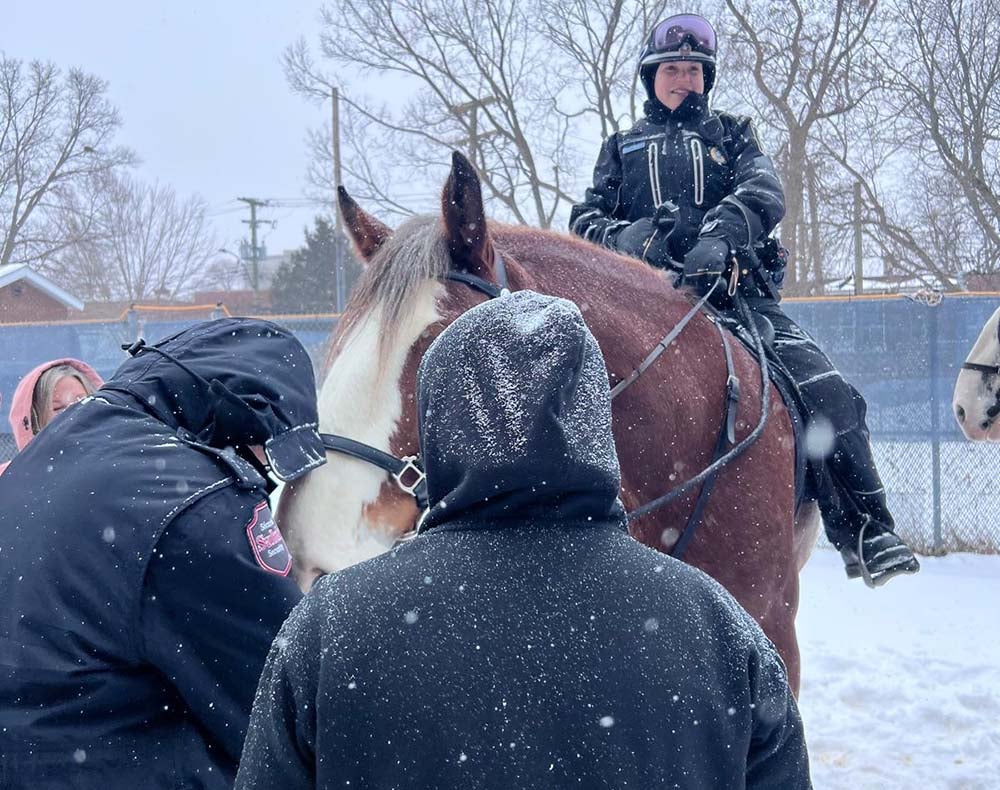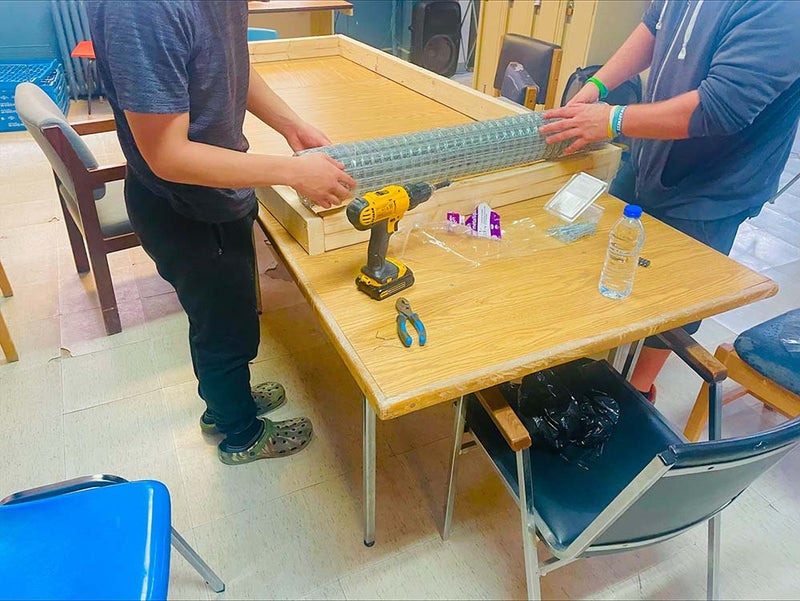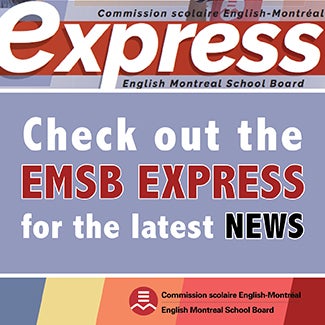EMSB provides important support to Indigenous students at risk

The English Montreal School Board is proud to provide the pedagogical component for Ulluriaq, a Centre in NDG that supports Indigenous students at risk by bridging culture and education.
According to Head Teacher Ophir Benjacob, Ulluriaq is an alternative school serving boys from Nunavik, Quebec, primarily those from communities in and around the Ungava Peninsula. Operating under the Ungava Tulattavik Health Centre, the school provides education to at-risk and neurodivergent teens in a setting that prioritizes cultural connection and hands-on learning.
When the EMSB took on Ulluriaq’s educational component, it did so with a commitment to cultural accommodation and respect. Initially overseen by Mountainview Alternative High School in Côte Saint-Luc, Ulluriaq quickly distinguished itself through a unique, alternative approach tailored to the specific needs of its students.
“For many of our boys, traditional schooling has been either nonexistent or deeply traumatic,’’ said Mr. Benjacob. “Recognizing this, we have redefined education by putting culture and hands-on learning at the forefront. Instead of forcing academics in isolation, we integrate them into meaningful activities such as stone carving and woodworking—practices that naturally involve math and earth sciences. This approach has transformed the learning experience, making education accessible and engaging.”

This year, in collaboration with EMSB Project Development Officers for Indigenous support Raymond “RJ” Johnson and Kurt Kerschl, Ulluriaq staff have taken significant strides forward. A cultural attaché, someone fluent in the language and attuned to the cultural nuances of our students, has been engaged. They have also acquired two large freezers which are regularly stocked with traditional country food such as seal, caribou, Arctic char, and beluga. These foods are prepared by the attaché, reinforcing a vital connection to the boys’ heritage.
In addition, thanks to the EMSB, Ulluriaq has secured proper funding to expand its carpentry shop, providing a structured space for students to develop practical skills. Looking ahead to next year, they will introduce a small engine repair shop—an invaluable skill set for life in the North, where snowmobiles and four-wheelers are essential for winter transportation.
“At Ulluriaq, we are not just teaching; we are building a foundation for resilience, self-sufficiency, and cultural pride,” says Benjacob. “By meeting our students where they are—both academically and culturally—we are proving that education can be a tool for empowerment, not a barrier to success.”
As a child Johnson-Brown grew up in the care system. “I felt an immediate pull when I learned that we provide educational services to children in a facility that is locked down—whether they arrive through the justice system or the child welfare system,” he said. “These children are often disconnected from their homes and communities, and that reality became my first focus point.
“Many of the children we serve speak Inuktitut, not English or French. It's such a surreal and disorienting experience—to be taken from your home, your culture, and your language, and then placed in an environment where you can’t even begin to process what's happening to you. Thankfully, through strong community relationships, Kooyoo was brought in to support these youth. She offers not only language accessibility but also a sense of familiarity and cultural connection. Having someone who speaks their language makes a meaningful difference in helping them navigate and balance the culture shock.”
Johnson-Brown expressed his appreciation to Project Nunavut, which partners with hunters in the North to ensure these children have access to nourishing meals that align with their traditional diets.
“The Western diets in urban centres are not the same, and when we see health issues arise, we must look at all areas of the students' lives to ensure their needs are being met,” Johnson-Brown said. “Despite these successes, we still face challenges in meeting the unique needs of these children. With uncertain funding from the Government of Quebec and barriers around exactly what can be purchased, there is still a lot of work to be done.” Here is a short and excellent introductory film to the Inuit culture to learn more:
About the English Montreal School Board
With a youth and adult sector population of more than 35,000 students, the English Montreal School Board (EMSB) is the largest English public school board in Quebec. Established on July 1, 1998, when the province created new boards along linguistic lines, the EMSB network consists of 73 schools and centres. For more details, visit the EMSB website at www.emsb.qc.ca











